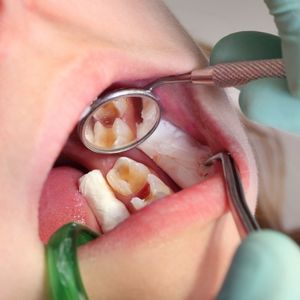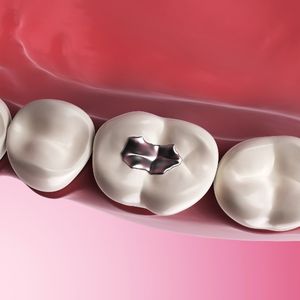
You may be wondering why it’s necessary to get a cavity filled if it isn’t causing you pain. Even if a cavity doesn’t hurt, it can cause further damage to your teeth if left untreated. Dental fillings help prevent that future damage, as well as the discomfort it could bring!

What Are Cavities?
A cavity happens when bacterial acids create a small hole in your tooth. These acids are created by the bacteria in your mouth mostly using the sugar in food particles. You can help prevent the formation of cavities by brushing and flossing your teeth every day and visiting your dentist every six months for a cleaning.
If you visit your dentist regularly and keep up with your daily brushing, you probably won’t have any cavities at all! Even if you do, they’re more likely to be much smaller and easier to treat the more you maintain your oral health habits. Some cavities, if caught early, can be treated with fluoride to restore the enamel that protects the tooth, but many cavities are treated with dental fillings.

How Fillings Work
Unfortunately, we can’t just cover up the damage to your teeth from a cavity and expect it to get better. Because teeth aren’t able to heal themselves when they get damaged or infected, fillings are used to prevent further damage or decay to your teeth.
Dentists treat cavities by first removing the areas of decay, then filling the area with a strong material that will mimic the hardness of your tooth.
Pain is caused by the decay eating through your tooth, so even if you don’t feel pain, getting a cavity filled will prevent the decay from spreading and causing pain in the future.
Fillings Prevent Problems in the Future
Not only do fillings treat the tooth decay currently present on your tooth, but they also help prevent further damage. Removing areas of tooth decay halts the decay process, so if a cavity goes untreated for too long, it can expand deeper into your tooth and even ultimately destroy the tooth. Fillings are an easy way to help save your tooth!
Have a question? Reach out to us!


